The Lebanese American University is a secular private American university in Beirut and Byblos, Lebanon. It is chartered by the board of regents of the University of the State of New York and is accredited by the New England Commission of Higher Education (NECHE). It has two campuses and offers 37 minors, 33 bachelor's degrees, and 24 master's degrees, in addition to Pharm.D. and M.D. degrees.
Ghazi-Walid Falah is a Bedouin Israeli Palestinian-Canadian geographer, who was a tenured professor at the University of Akron, Ohio. He is an expert on political, social and urban geography of the Middle East and the Arab World, with special emphasis on Israel. He has published over 45 articles in 23 peer-reviewed journals, and he has given papers at conferences. He is author and co-editor of five books and monographs, including Geographies of Muslim Women, co-edited with Caroline Nagel. He also has co-authored articles with colleagues, David Newman and Colin Flint, with whom he has conducted joint research.

The Institute for Palestine Studies (IPS) is the oldest independent nonprofit public service research institute in the Arab world. It was established and incorporated in Beirut, Lebanon, in 1963 and has since served as a model for other such institutes in the region. It is the only institute in the world solely concerned with analyzing and documenting Palestinian affairs and the Arab–Israeli conflict. It also publishes scholarly journals and has published over 600 books, monographs, and documentary collections in English, Arabic and French—as well as its renowned quarterly academic journals: Journal of Palestine Studies, Jerusalem Quarterly, and Majallat al-Dirasat al-Filistiniyyah. IPS's Library in Beirut is the largest in the Arab world specializing in Palestinian affairs, the Arab–Israeli conflict, and Judaica.
Feminist Studies is a peer-reviewed academic journal covering women's studies that was established in 1972. It is an independent nonprofit publication housed at the University of Maryland in College Park, Maryland. Besides scholarly articles, the journal also publishes creative writing, artwork and art essays, book reviews, political and social commentaries, interviews, and activist reports.
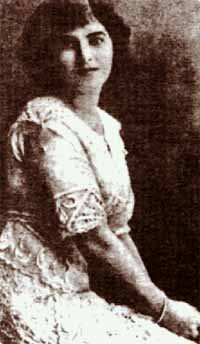
May Elias Ziadeh was a Palestinian-Lebanese Maronite poet, essayist, and translator, who wrote many different works both in Arabic and in French.
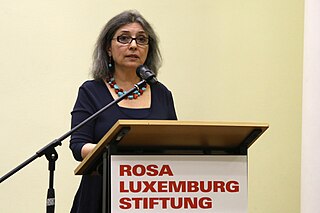
Shahrzad Mojab is an academic activist and professor, teaching at the Department of Leadership, Higher and Adult Education and Women and Gender Studies Institute, at the University of Toronto. Shahrzad has been living in Canada since 1986 with her lifelong partner, colleague and comrade, Amir Hassanpour, and their son, Salah.

Aspasia: The International Yearbook of Central, Eastern, and Southeastern European Women's and Gender History is an annual peer-reviewed academic journal covering research on women's and gender history in central, eastern, and southeastern Europe. Aspasia was founded in 2006 by Francisca de Haan at the Gender Studies Department of the Central European University and is published by Berghahn Journals. Early editorial board members included the historians Maria Bucur and Krassimira Daskalova.
Women's Studies Quarterly, often referred to as WSQ, is a biannual peer-reviewed academic journal of women's studies that was established in 1972 and published by The Feminist Press. The Feminist Press was founded by Florence Howe in 1970. Before changing its name to Women's Studies Quarterly in 1981, the publication was titled Women's Studies Newsletter. The name change indicated a shift in the publication's purpose and content.

Feminist Formations is a peer-reviewed academic journal established in 1988 as the NWSA Journal ; the name was changed beginning with the Spring 2010 issue. It publishes interdisciplinary and multicultural feminist scholarship in women's, gender, and sexuality studies linking feminist theory with teaching and activism. In addition to its essays focusing on feminist scholarship and its reviews of books, the journal regularly publishes special issues focused on topics especially important in the field of women's, gender, and sexuality studies and also features vibrant cover art and poetry and cutting-edge feminist artists and poets. The journal is edited by Patti Duncan, a professor of Women, Gender, and Sexuality Studies at Oregon State University, and is published three times per year by the Johns Hopkins University Press.
Trish Salah is an Arab Canadian poet, activist, and academic. She is the author of the poetry collections, Wanting in Arabic, published in 2002 by TSAR Publications and Lyric Sexology Vol. 1, published by Roof Books in 2014. An expanded Canadian edition of Lyric Sexology, Vol. 1 was published by Metonymy Press in 2017.
Sondra Hale is Professor Emeritus of Anthropology and Gender Studies at the University of California, Los Angeles (UCLA); former Co-editor of the Journal of Middle East Women's Studies and former Co-Chair, Islamic Studies. Her regional interests are in Africa and the Middle East, focusing mainly on Sudan and Eritrea.
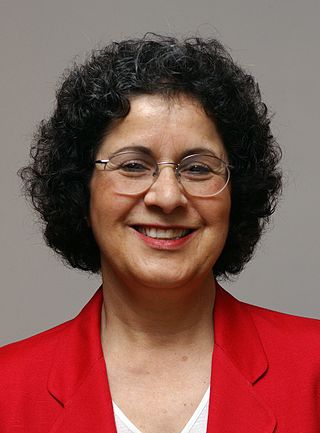
Suad Joseph received her doctorate in Anthropology from Columbia University in 1975. Dr. Joseph is Professor of Anthropology and Women and Gender Studies at the University of California, Davis and in 2009 was President of the Middle East Studies Association of North America. Her research addresses issues of gender; families, children, and youth; sociology of the family; and selfhood, citizenship, and the state in the Middle East, with a focus on her native Lebanon. Her earlier work focused on the politicization of religion in Lebanon. Joseph is the founder of the Middle East Research Group in Anthropology, the founder and coordinator of the Arab Families Working Group, the founder of the Association for Middle East Women's Studies, the general editor of the Encyclopedia of Women and Islamic Cultures, and the founding director of the Middle East/South Asian Studies Program at the University of California at Davis. She is also the founder and facilitator of a six-university consortium of the American University of Beirut, American University in Cairo, Lebanese American University, University of California at Davis, and Birzeit University Consortium.

Feminist Africa is a peer-reviewed academic journal that addresses feminist topics from an "African continental perspective". It is published by the African Gender Institute. Its founding editor-in-chief is Amina Mama. It was accredited in 2005 by the South African Department of Education. This allows authors publishing in the journal to collect publication subsidy. The journal is primarily online but also distributes a small number of print copies.

The Arab Center for Research and Policy Studies (ACRPS) is an Arab research institute with particular interest in the social sciences, applied social sciences, regional history and geostrategic affairs. To this effect, the ACRPS coordinates and develops research, publications, projects and events on issues and challenges relevant to the Arab world. The ACRPS primarily conducts its work in Arabic but publishes in both Arabic and English.
Raidah is an Arabic word meaning leader or pioneer, sometimes used as a personal name. It can also refer to:
Salwa Nassar was a Lebanese nuclear physicist and college administrator. She was the first Lebanese woman to earn a PhD in physics.
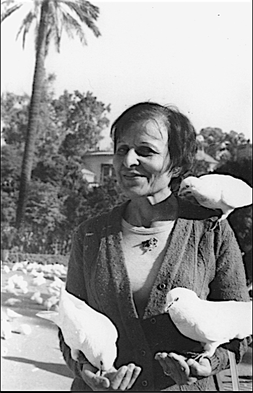
Rose Ghorayeb was a Lebanese writer, author, literary critic, and feminist. She was a professor of Arabic literature at the Lebanese American University and was frequently referred to as the "first female critic in Arabic literature". Regarded as a pioneer in aesthetic criticism, her literary career spanned more than 70 years and included many children stories, articles, biographies and plays.

Salma Sayegh was a Lebanese writer, novelist, and feminist of the Nahda era. She, along with other female contemporaries, helped in founding the Society for Women's Renaissance. She wrote for several journals, newspapers, and magazines such as Sawt al-Mar’a and published many novels. She also played part in Lebanon's cultural salon movement as she hosted one at her home in Beirut in the early 1950s.
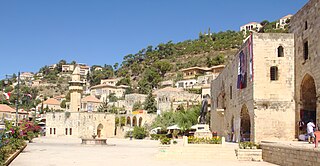
Warda Nicolas Yusuf Al-Turk was a 19th-century Lebanese poet who was born and raised in the Chouf District located in Mount Lebanon, during the reign of the Ottoman Empire. She was considered as a "revivalist" in her time, along with other remarkable women from the region, because she was able to revive old classical poetry. Through the influence of her poet father Nicolas Al-Turk who was a court poet for the historic Amir Bashir al-Shihabi II, Warda al-Turk developed a passion for writing and thus devoted most of her work to empowering women.










